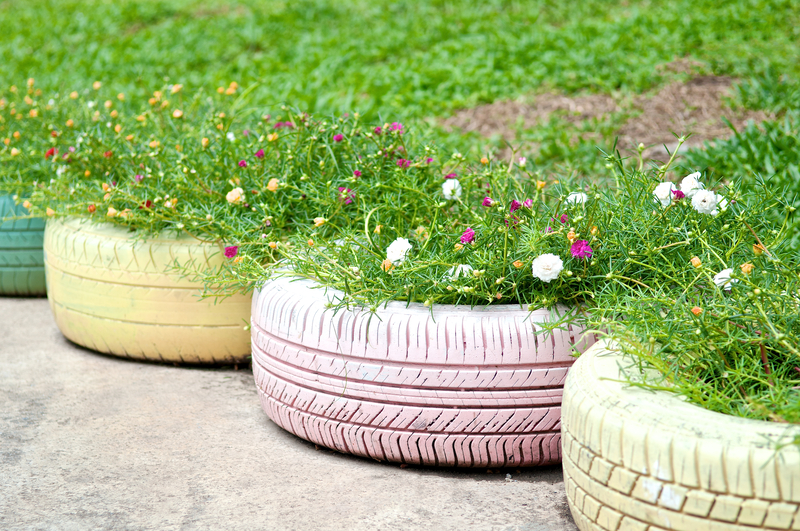How Waste Clearance Services Support Sustainable Living
In today's dynamic world, the pursuit of sustainable living is more crucial than ever. One central element in this quest is how we handle our waste. Robust waste clearance services do not just remove unwanted items from our homes and businesses--they play a transformative role in building environmentally conscious communities, reducing pollution, and safeguarding resources for future generations.
Understanding Sustainable Living and Its Importance
Sustainable living is the practice of reducing personal and societal environmental impact by making thoughtful choices in resource consumption and waste management. It centers on:
- Minimizing waste production
- Promoting reuse and recycling
- Supporting renewable energy sources
- Conserving natural resources
An essential component of achieving these goals lies in the way we manage, segregate, and dispose of waste. Here's where waste clearance services step in as crucial partners for individuals, businesses, and entire communities.

What Are Waste Clearance Services?
Waste clearance services encompass a broad range of solutions designed to help collect, remove, transport, sort, recycle, and dispose of various types of waste. Whether it's residential rubbish removal, bulky furniture collection, or specialized commercial clearances, these services streamline the process of responsible waste disposal and advance the key goals of sustainable living.
Types of Waste Clearance Services
- Domestic Waste Clearance - handling day-to-day household rubbish, appliances, and unwanted items
- Commercial Waste Clearance - managing businesses' and offices' waste, including old equipment and confidential documents
- Specialist Services - including garden clearances, construction debris removal, and hazardous materials management
The Environmental Impact of Improper Waste Disposal
When waste is not managed responsibly, it leads to severe environmental, health, and social problems such as:
- Landfill Overflow - Landfills release greenhouse gases and toxic leachates into the environment.
- Air and Water Pollution - Decaying waste contaminates the air and water supplies.
- Loss of Biodiversity - Waste in natural habitats threatens wildlife and plants.
- Resource Depletion - Failure to recycle means more raw materials are harvested, straining ecosystems.
- Human Health Hazards - Exposure to hazardous materials can lead to serious health issues.
By leveraging professional waste clearance services, we can drastically reduce these negative consequences and create a more sustainable environment for all.
Sustainable Waste Management: The Role of Waste Clearance Providers
Waste clearance companies are at the heart of sustainable waste management systems. Their role extends far beyond the collection of rubbish; they serve as the link between waste production and responsible disposal or recycling. Here's how their involvement supports sustainable living:
1. Responsible Waste Sorting and Segregation
The first step towards effective recycling is proper segregation at the source. Professional waste clearance services are trained to meticulously separate recyclable, non-recyclable, and hazardous materials. This ensures:
- Higher recycling rates
- Reduced contamination of recyclable materials
- Maximized resource recovery
- Reduced landfill dependency
2. Efficient Recycling Processes
Many leading waste clearance providers operate recycling facilities or partner with certified recycling centers. They sort collected waste and send recyclable items like paper, plastics, glass, and metal for further processing. This not only conserves raw materials but also reduces the overall environmental footprint of your discarded items.
3. Hazardous Waste Handling and Compliance
Hazardous waste poses risks to both people and the planet. Licensed clearance providers follow strict regulations to collect, transport, and dispose of dangerous substances, such as electronics (e-waste), asbestos, chemicals, or batteries, in a way that minimizes risk and complies with local and international guidelines.
4. Supporting Circular Economy Principles
The circular economy is an innovative model focusing on keeping products and materials in use for as long as possible. Waste clearance services facilitate this by:
- Recovering usable items for donation or resale
- Partnering with upcycling and refurbishment projects
- Encouraging clients to opt for repair and reuse before disposal
Through these efforts, they actively reduce the volume of waste sent to landfill and give materials a new lease on life.
5. Reducing Illegal Dumping and Littering
Comprehensive waste clearance solutions limit the temptation and opportunity for illegal dumping, which pollutes green spaces and waterways. These services provide convenient, reliable alternatives that make ethical waste disposal accessible to everyone.
How Waste Clearance Services Promote Sustainable Habits in Communities
Community engagement is essential for long-term sustainable waste management. Through education and awareness campaigns, waste clearance companies encourage:
- Proper waste segregation at home and workplaces
- Buying practices that reduce waste, such as choosing products with minimal packaging
- Participation in recycling schemes and local clean-up events
- Safe disposal of hazardous or bulky waste
Some waste management firms go further by offering workshops, school programs, and digital resources teaching about the impact of waste and the significance of sustainable practices. This fosters a culture of responsibility and environmental stewardship across generations.
Key Benefits of Professional Waste Clearance for Sustainable Living
- Reducing Environmental Footprint: By channeling waste away from landfills and into recycling streams, these services lower emissions, energy usage, and pollution.
- Saving Energy and Resources: Recycling materials like glass, paper, and metals saves vast amounts of energy compared to extracting new raw materials.
- Enhancing Health and Safety: Proper disposal of sharp, hazardous, or inflammable waste protects both public health and the environment.
- Boosting Local Economy: The recycling and re-use industry create jobs in collection, sorting, processing, and selling refurbished goods.
- Compliance and Peace of Mind: Licensed waste removal protects you from legal or environmental penalties linked to improper disposal.
Integrating Waste Clearance Services Into a Greener Lifestyle
Here are practical steps individuals and businesses can take to maximize the positive impact of waste clearance on sustainable living:
- Choose eco-conscious providers with certified green credentials and transparent waste handling processes.
- Sort your waste before collection, separating recyclables, green waste, and hazardous materials.
- Request recycling or donation options--ask your provider if they can deliver usable items to charities or recycling depots.
- Downsize and declutter responsibly, minimizing consumption and waste output at the source.
- Consider ongoing "zero waste" strategies, such as composting or bulk buying to reduce packaging waste.
Case Studies: Real-World Impact of Waste Clearance on Sustainability
Case Study 1: Transforming a Community Through Waste Collection Drives
In one UK town, regular neighborhood waste collection events--organized by a local clearance company--resulted in the recycling of over 50 tons of electronics and household goods in a single year. The initiative reduced fly-tipping, boosted local recycling rates by 25%, and sparked new community-led upcycling workshops.
Case Study 2: Commercial Offices Achieve Zero to Landfill
A London-based business center partnered with a sustainable waste clearance provider, installing dedicated bins for paper, food, electrical items, and plastics. In two years, none of their waste ended up in landfill, and the reusable office furniture found new homes in local charities, saving costs and supporting social initiatives.
Case Study 3: Tackling Hazardous Waste in Construction
A construction project employed a licensed clearance team for asbestos and chemical waste removal. By adhering to strict regulations, dangers to workers and the local environment were avoided, and over 70% of renovation debris was recycled or upcycled, setting a new standard for sustainable building practices.

The Future of Waste Clearance in Sustainable Living
As technology, regulations, and consumer awareness evolve, the role of waste clearance services in achieving sustainable living will only deepen. We can expect future trends such as:
- Digitization: Online booking, real-time waste tracking, and digital receipts for full transparency.
- Smart Sorting: Use of AI and robotics to improve recycling rates and contamination control.
- Wider Circular Economy Partnerships: Direct links between clearance providers and refurbishers or upcycling workshops.
- Carbon Neutral Logistics: Electric or biofuel vehicles reducing the carbon footprint of collection and transportation.
These innovations, combined with stricter landfill targets and increased public participation, will make waste clearance companies pivotal agents in the global shift toward sustainable lifestyles.
Conclusion: Choosing Waste Clearance Services for a Sustainable Tomorrow
The choices we make with our waste have a ripple effect across our communities and the broader environment. By partnering with professional, eco-friendly waste clearance services, individuals and businesses can play a significant part in conserving resources, protecting the planet, and building a healthier, more sustainable future.
Let's commit to sustainable living--not just through what we buy and use, but in how we clear away the things we can't keep. Waste clearance services are invaluable allies on this journey, offering convenience, compliance, and most importantly, a cleaner tomorrow for generations to come.